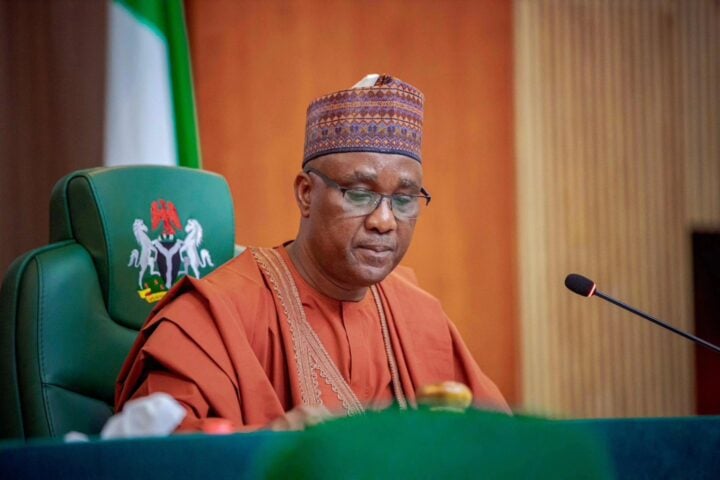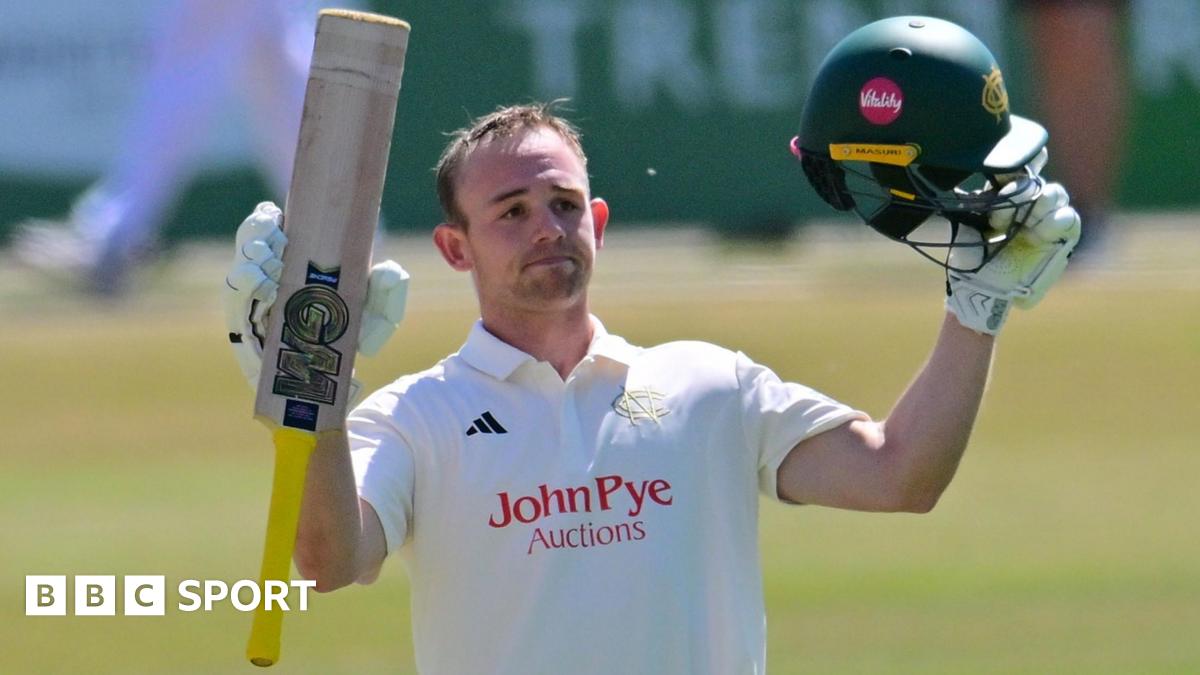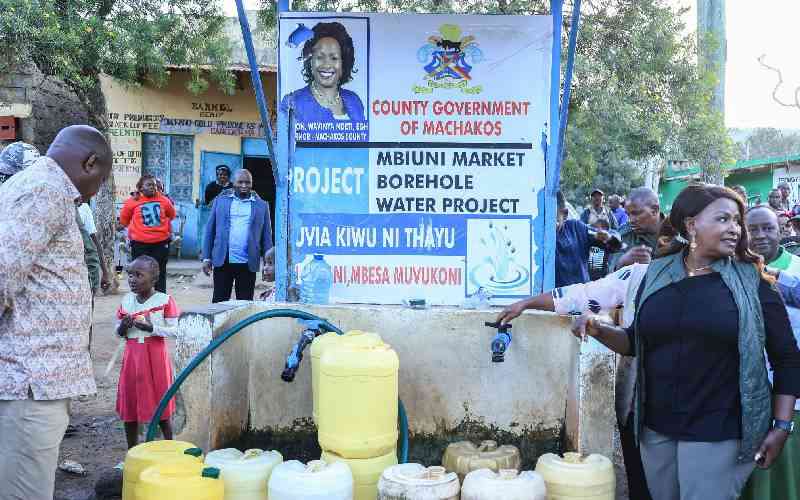How we are using cash from subsidy removal, by Tinubu
Featured

Those questioning the usage of the funds accruing to the government from the removal of petrol subsidy got an answer yesterday.
The money is being used for the development of infrastructure and building of human capital, the Federal Government said yesterday.
The accruals into the federation account have more than doubled since 2023 after President Bola Ahmed announced that “fuel subsidy is gone” during his inauguration speech.
The funds are shared among federal, state and local governments.
The amount shared monthly, which hovered around N9 billion during the Buhari government, is now an average of N1.6 trillion in the past two years.
“Since petrol subsidy removal, we have redirected those funds into targeted interventions, expanding our social safety nets, improving public transportation, and financing critical infrastructure.
“Most importantly, we have strengthened our fiscal buffers, making Nigeria more resilient to external shocks,” President Bola Ahmed Tinubu said yesterday.
Speaking through Minister of State Finance, Nkiruka Uzoka-Anite, the President added: “For far too long, Nigeria’s economy has been burdened by structural inefficiencies, fiscal leakages, and an overreliance on oil revenues.
“But we are not here today to dwell on the challenges of the past. We are here to chart a new course.
“In 2022 alone, Nigeria spent over N4 trillion on fuel subsidies, more than we allocated to capital expenditure.
“This was not only physically unsustainable, it was unjust.
“A subsidy that disproportionately benefited the affluent, encouraged smuggling, and bred inefficiency was neither equitable nor strategic.”
READ ALSO: Meet the next Olubadan-in-waiting, ex-Gov Rashidi Adewolu Ladoja
The President spoke in Abuja during the opening of a National Conference on Public Accounts and Fiscal Governance, organised by the Public Accounts Committees (PACS) of the Senate and House of Representatives.
Last month during President Tinubu’s visit to his state, Nasrawa State Governor Abdullahi Sule also told those asking how subsidy money is being spent to visit the state and see the infrastructure that his government has undertaken.
Yesterday, the President spoke further on how his government is transforming the economy.
He said: “These reforms are designed to widen the tax base by integrating the informal sector, simplify compliance for small and medium-sized enterprises, digitise revenue collection to reduce human interference and eliminate leakages, and harmonise multiple taxes to make doing business easier in Nigeria”.
Describing the new tax system as “a governance imperative,” President Tinubu noted that Nigeria is laying the foundation for a self-sustaining economy that gradually moves away from dependence on oil revenues to a more diverse and inclusive revenue base.
The President also emphasised economic diversification as a top policy objective, naming agriculture, manufacturing, digital services, renewable energy, mining, and the creative economy as focal sectors receiving targeted investments and reforms.
He referenced new initiatives like the National Credit Guarantee Company, which aims to support local production, empower SMEs, and boost non-oil exports.
“These efforts go beyond mere economic metrics.
“They are creating jobs, fostering innovation, building economic resilience, and strengthening our national security and long-term stability,” the President said.
On monetary policy, President Tinubu acknowledged the Central Bank’s efforts in stabilising the naira, taming inflation, and coordinating effectively with fiscal authorities.
“There is better coordination now between the fiscal and monetary side, and we are determined to reduce inflationary pressures by addressing structural bottlenecks, particularly in food supply chains.”
The President affirmed that transparency and accountability are non-negotiable, citing steps taken to digitise public finance systems through platforms such as the Integrated Payroll and Personnel Information System (IPPIS), the Government Integrated Financial Management Information System (GIFMIS), and the Open Treasury Portal.
“These platforms ensure that public funds are traceable, public officers are accountable, and the Nigerian people are empowered with information.
“We must move from opacity to openness, from suspicion to confidence,” he declared.
President Tinubu called on the National Assembly, especially the Public Accounts Committees, to uphold their constitutional duty with “integrity, courage, and independence.”
House of Representatives Speaker Abbas Tajudeen, raised the alarm over Nigeria’s unresolved fiscal infractions, revealing that over N300 billion in public funds flagged by audit reports remain unrecovered.
Abbas, represented by House Leader, Julius Ihonbvere, described the situation as unacceptable and warned that fiscal responsibility cannot thrive where audit queries are routinely ignored without consequence.
Senate President Godswill Akpabio urged the Public Accounts Committees (PACs) of the National Assembly to assert their constitutional powers in enforcing transparency and accountability in government, warning against the growing trend of non-compliance with legislative summons.
Represented by Senator Abdul Ningi, Akpabio emphasised that Nigeria’s progress is inseparable from effective fiscal oversight, which is the central mandate of the PACs.
“The Public Accounts Committees are not just legislative creations, they are constitutional bodies empowered by Sections 80, 81, and 88 of the Constitution to act as watchdogs of public funds.
“They have the power to summon any individual, public or private, to account for the use of government resources,” he said.
Akpabio lamented the lack of responsiveness by some agencies and individuals to invitations from the legislature, describing it as an affront to democracy and the rule of law.
Chairman of the Senate Committee on Public Accounts, Senator Aliyu Wadada, affirmed that the 10th Senate remains fully committed to open budgeting and prudent spending, and is working to review outdated fiscal legislation.
You may also like...
Diddy's Legal Troubles & Racketeering Trial

Music mogul Sean 'Diddy' Combs was acquitted of sex trafficking and racketeering charges but convicted on transportation...
Thomas Partey Faces Rape & Sexual Assault Charges

Former Arsenal midfielder Thomas Partey has been formally charged with multiple counts of rape and sexual assault by UK ...
Nigeria Universities Changes Admission Policies

JAMB has clarified its admission policies, rectifying a student's status, reiterating the necessity of its Central Admis...
Ghana's Economic Reforms & Gold Sector Initiatives

Ghana is undertaking a comprehensive economic overhaul with President John Dramani Mahama's 24-Hour Economy and Accelera...
WAFCON 2024 African Women's Football Tournament

The 2024 Women's Africa Cup of Nations opened with thrilling matches, seeing Nigeria's Super Falcons secure a dominant 3...
Emergence & Dynamics of Nigeria's ADC Coalition

A new opposition coalition, led by the African Democratic Congress (ADC), is emerging to challenge President Bola Ahmed ...
Demise of Olubadan of Ibadanland
Oba Owolabi Olakulehin, the 43rd Olubadan of Ibadanland, has died at 90, concluding a life of distinguished service in t...
Death of Nigerian Goalkeeping Legend Peter Rufai

Nigerian football mourns the death of legendary Super Eagles goalkeeper Peter Rufai, who passed away at 61. Known as 'Do...




